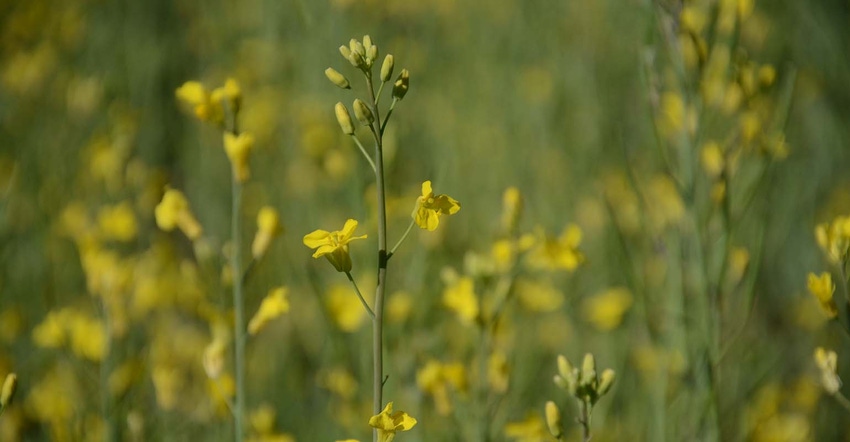
BASF is no longer just in the chemical business, it has entered the world of seed sales.
Last Friday, the company announced its purchase of Bayer Ag seed and herbicide business. The acquisition, according to Paul Rea, senior vice president of BASF Crop Protection, brings the company closer to its customers. Scott Kay, vice president Crop Protection North America, says the investment in research and development will remain strong. "Innovation will be the key driver to continually meet the needs of our customers," he adds.
The two men answered questions surrounding the current purchase Bayer Ag as it relates to the future of BASF's seed and herbicide business.
BASF has never sold seed before, how will you handle this new venture?
Rea points out that while BASF has not sold seed directly, the company has been "seed-minded." He pointed to its existing trait business and strong seed treatment business. "We have been active in the seed industry in a different way," he says.
Rea adds, "We are acquiring a business that is run well. We will be receiving a 1,800 member staff. That knowledge transfer is high and necessary for us to be successful. It is an opportunity for BASF to understand and learn the seed business better."
Does BASF plan to enter the corn seed market?
"We are open to expand and grow our portfolio long-term," Rea says. Adding that BASF is entering the seed market in a "meaningful way" and any future expansion would need to be a strategic fit, customer focused and fiscally responsible.
Will canola farmers see any changes with acquisition?
Kay points out that Bayer's InVigor canola hybrids have performed well. "Want to continue to look for ways we can grow seed quality, yield and trait and be successful in canola." Adding that there will not be much of a name change, but investment in helping canola perform better in farmers field.
Rea added that BASF intent is to "avoid customer interruption," during this process.
Will you build the Liberty Link seed brand?
Rea says Liberty Link technology is well thought of in the market. "Customers have a high loyalty to those brands," he says. "We intend to invest and develop them for the long-term."
Did BASF license in the Xtend traits with Bayer or will BASF compete with Liberty Link?
Resistant weeds continue to be a problem for farmers. "We are committed to help farmers solve those problem with innovation approach, which requires a broad offering," Rea says. "We know it takes more than one product to solve a problem a farmer has with weed resistance."
"We are committed to providing choices to farmers," Kay added. "The new (portfolio) strengthens and broadens our approach."
What does Bayer bring to BASF herbicide portfolio?
"This is adds a new mode of action to our portfolio," Rea says. "It provides a new method for us to help farmers fight resistant weeds." The addition of glufosinate-ammonium is expected to continue to grow the company's portfolio. Bayer’s global glufosinate-ammonium nonselective herbicide business, commercialized under the Liberty, Basta, and Finale brands.
Will there be any name changes to acquired herbicides and seed brands?
"It's too early to say," Rea says. He says BASF is acquire a business that is successful in their own right. "There is a respect for what already achieved. Their brand reputation is strong already. We will build on that loyalty for the long term."
Note: BASF and Bayer have an integration team working through 2019. However, Rea says the transaction is subject to closing of Bayer acquisition of Monsanto and approval of authorities.
About the Author(s)
You May Also Like






